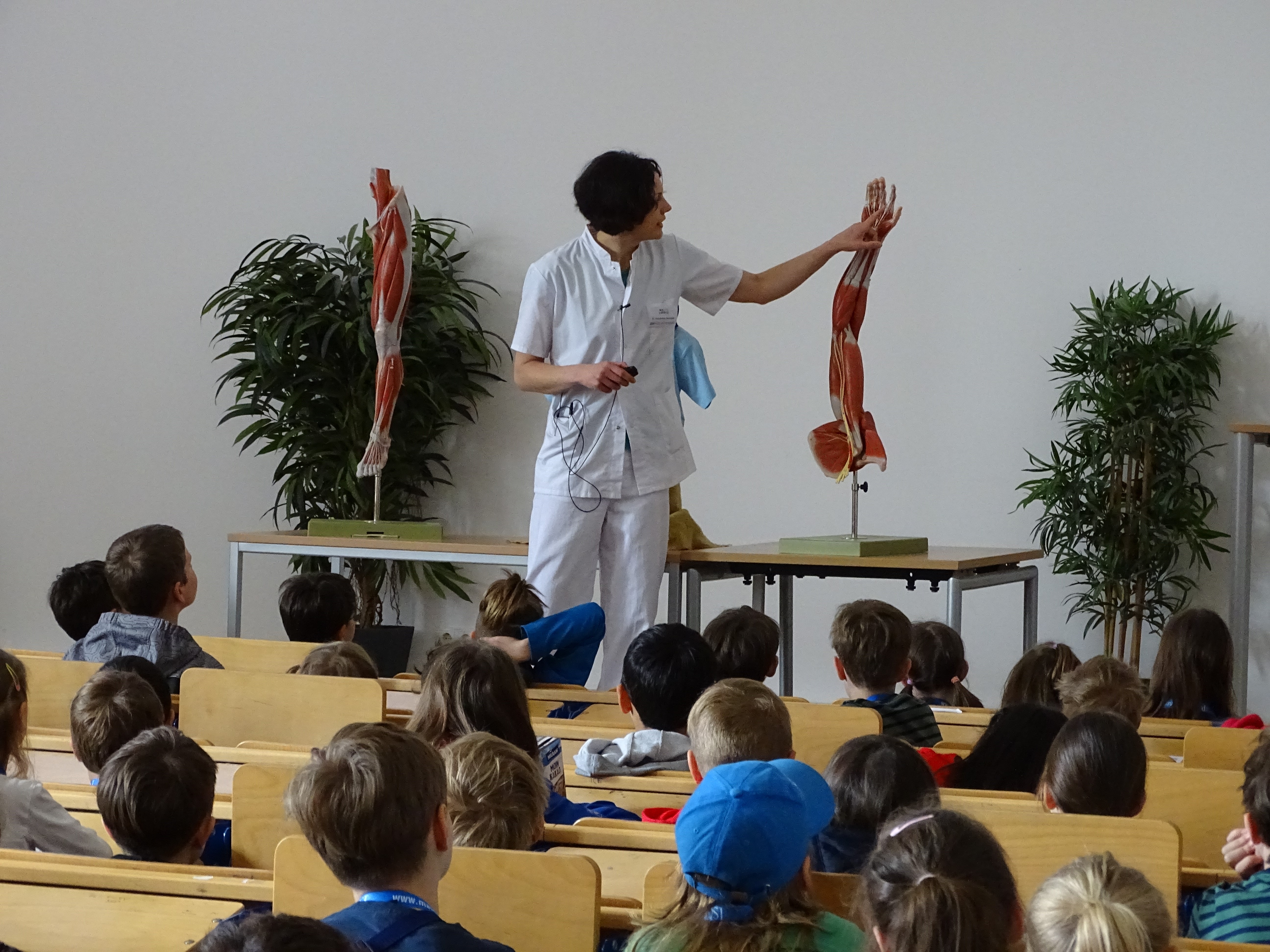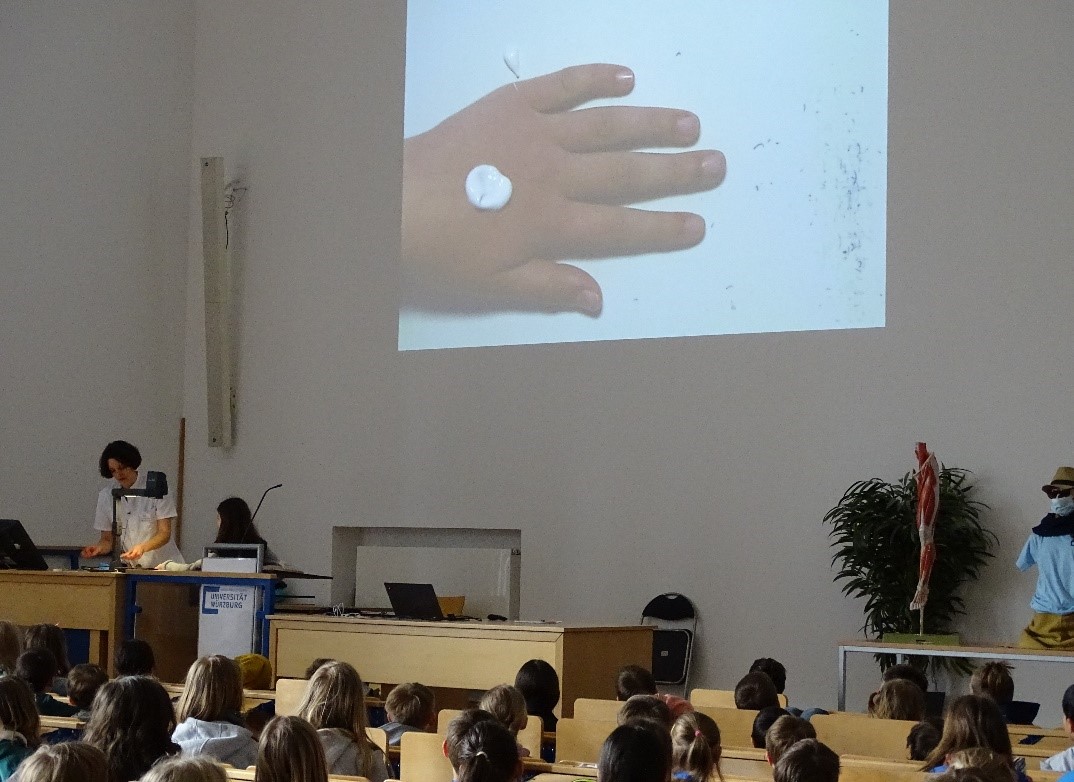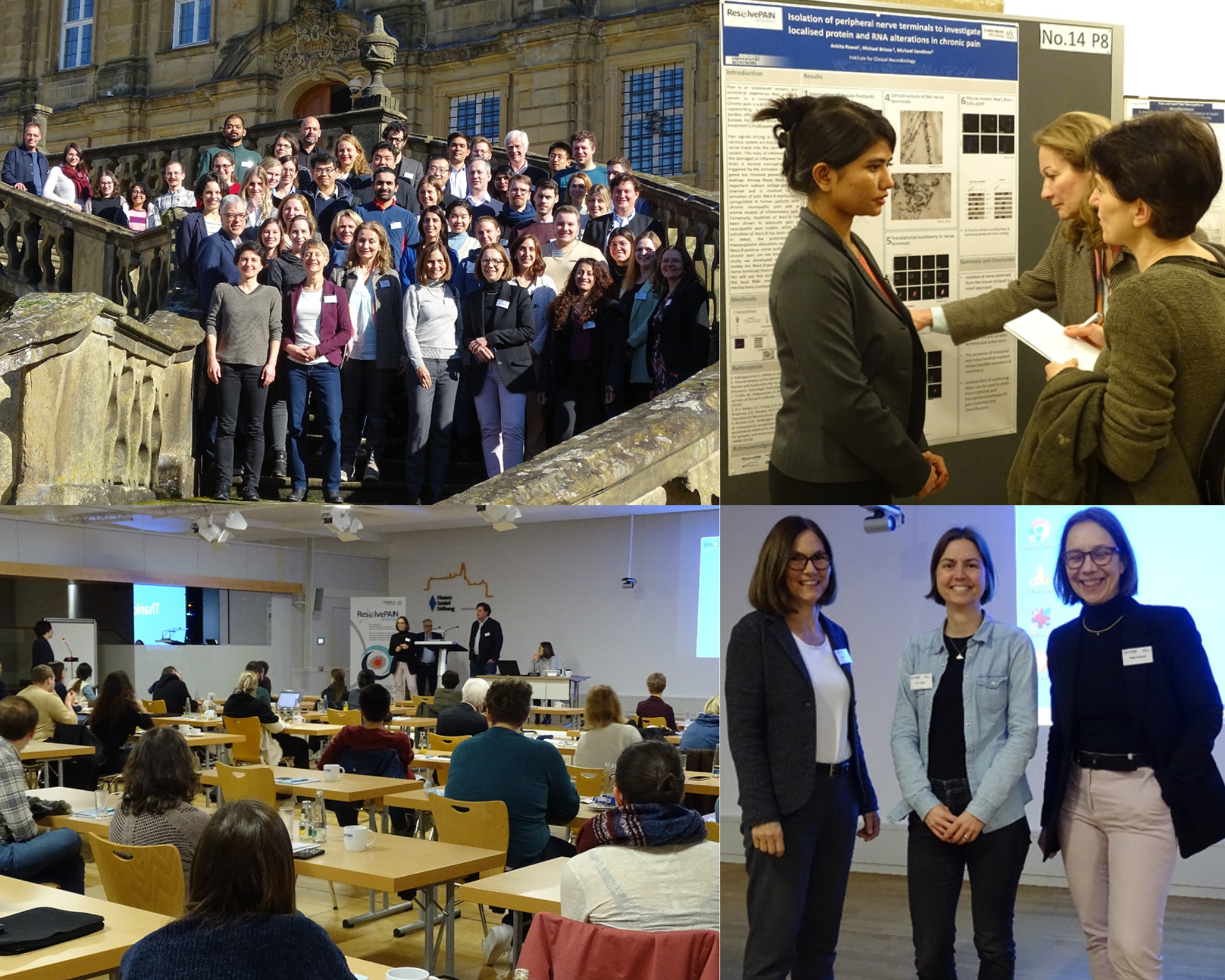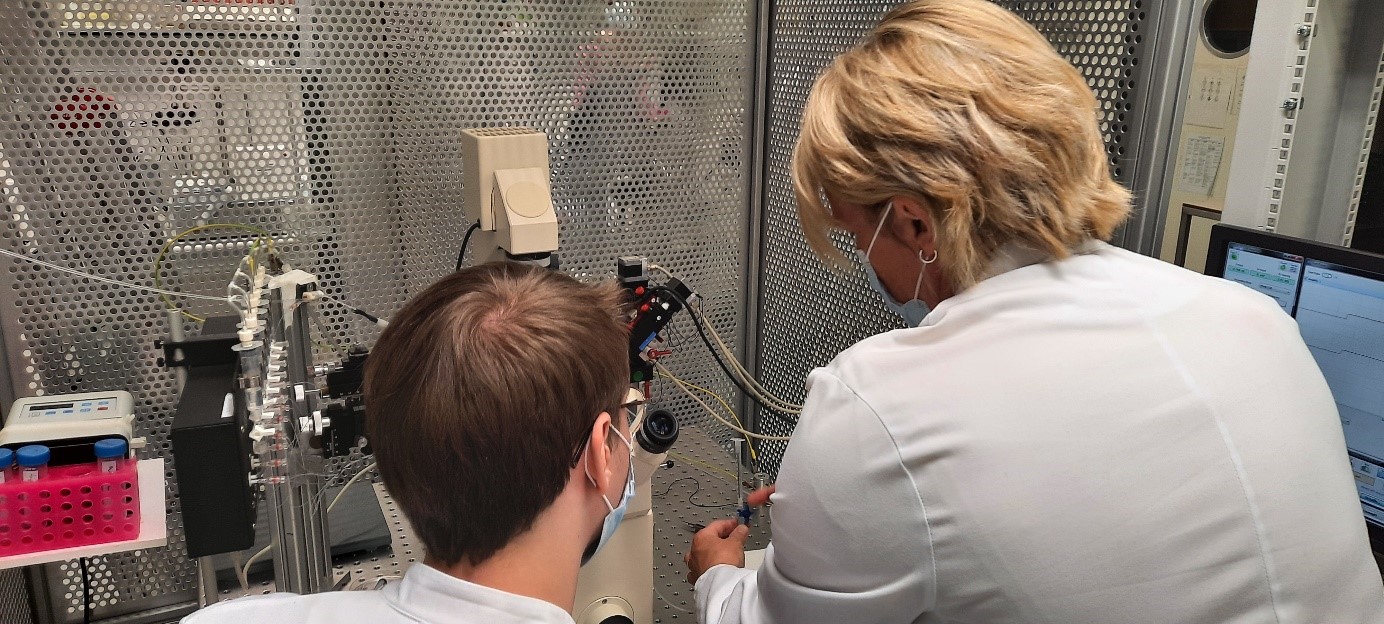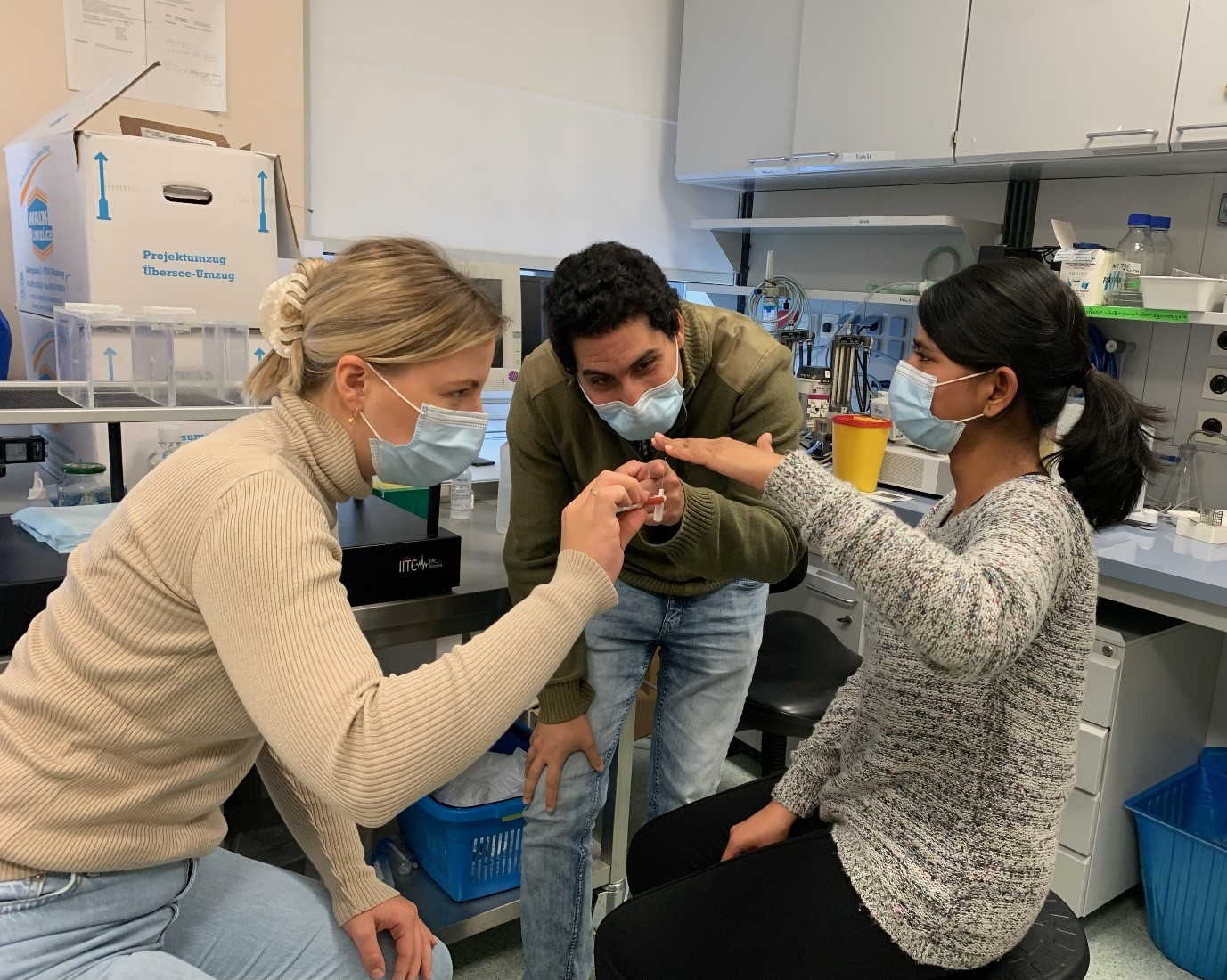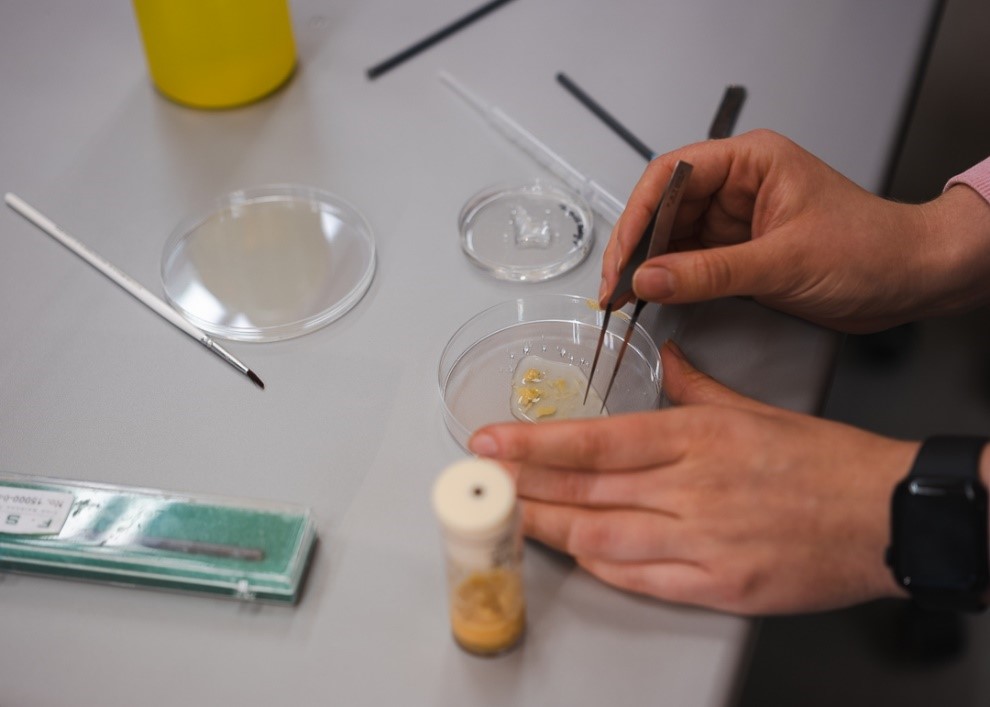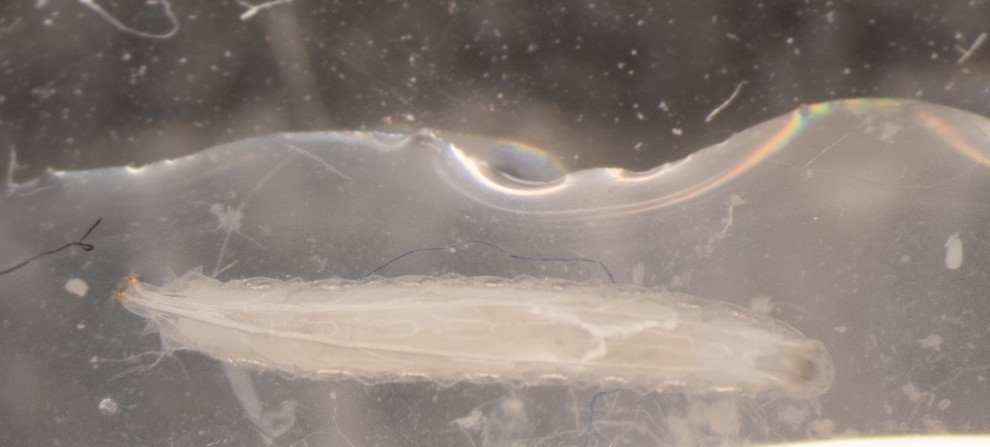In addition to providing training on specific methodologies that are being applied in the projects, during the courses participants are invited to actively engage in discussions and experiments. The courses have also proved to be an excellent opportunity to foster exchange between groups.
Photos of 3 courses that took place in 2022
Course: Recordings of ion channels
Conceived by Prof. Dr. Carmen Villmann, held by Prof. Dr. Camen Villmann and Dr. Natascha Schäfer, research assistant
Doctoral student Maximilian Koch observes hippocampal neurons in micro-fluid chambers under the fluorescence microscope. The patch-clamp method was used here for whole-cell electrophysiological recordings from these neurons. Prof. Dr. Carmen Villmann explains the different possibilities for the derivation of action potentials and the recording of current-voltage correlations in voltage-gated ion channels or currents recording after agonist application during the activation of ligand-gated ion channels.
Course: Measuring pain behaviour in animals
Conceived by Prof. M.D. Alexander Brack, held by doctoral student Adel Ben-Kraiem and Dr. Jeremy Chen, research associate
Doctoral student Adel Ben-Kraiem explains the so-called manual Frey test to M.D. Anna Widder (left), and doctoral student Ankita Rawar (right). This test is one of the most commonly used methods for investigating the pathophysiological mechanisms of pain. During the course, basic concepts of pain perception and the use of rodents in basic pain research were also discussed.
Course: Nociceptive behaviour in Drosophila
Conceived by Prof. Dr. Robert Kittel and group leader Dr. Mareike Selcho, held by Dr. Mareike Selcho, Ricarda Hesse and Sarah Stopp
The fruit fly Drosophila melanogaster is used as an in vivo system to identify molecules involved in pain resolution because of its accessibility at the genetic, cellular and neuronal levels, but at the same time high genetic similarity to mammals. The participants of the course given by Dr. Mareike Selcho, Ricarda Hesse and Sarah Stopp, from Leipzig University, had the opportunity to perform nociceptive behavioural experiments with Drosophila larvae (photos). In addition, the advantages and disadvantages of using Drosophila in pain research were discussed.
